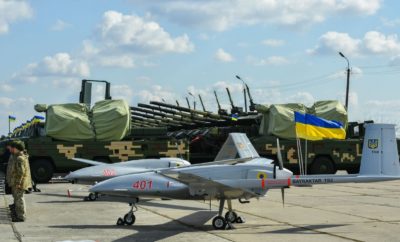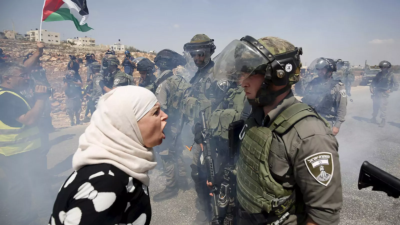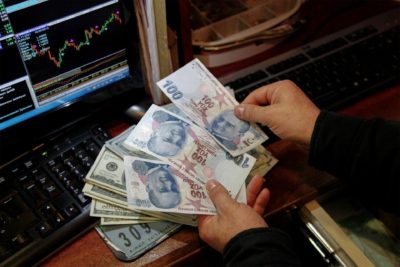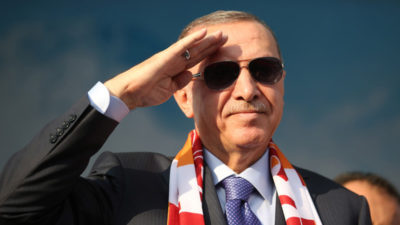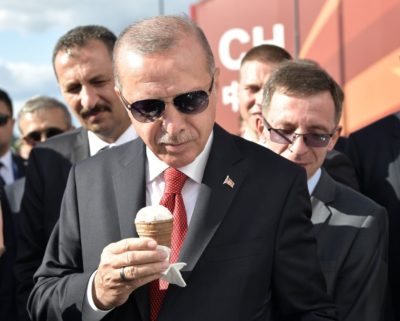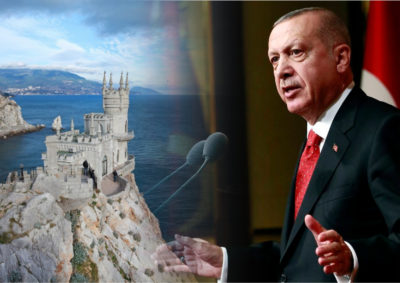Erdoğan intends to turn Turkey into a world leader...
During the years of Recep Erdoğan’s rule, Turkey has pursued a more active policy aimed at imperial revanchism and entering the “club of world leaders”. In particular:
– demonstratively declare a diplomacy independent from the influence of its main allies in the West (primarily the US);
– build more independent and productive economic relations with other world centres (especially China and Russia) in addition to the Western countries;
– position itself as a leader of the Islamic and Turkic world;
– generate a new geopolitical strategy…
Hamas Leaders Leave Turkey and Hand Over Hostages to Iran
The military conflict in the Middle East continues to keep the world diplomatic community on its toes. Israel is still planning a ground operation against Hamas militants and commanders in the Gaza Strip to clean up the territory once and for all. In planning this operation, Tel Aviv ignored numerous calls from various countries and international organizations urging it to refrain from any actions that could lead to a collective massacre of civilians living in this Arab enclave, numbering more than 2 million people. The temporary pause before X-Day is motivated by the need for more thorough preparation…
Erdoğan talks about peace with Russia, but sends weapons to Ukraine?
This is not the first time that Turkish leader Recep Tayyip Erdoğan has demonstrated to Russia the policy of double standards. Once again, it is all about Ukraine. On the one hand, Ankara assures Moscow of its interest in: achieving peace as soon as possible; extension of the “grain deal”; maintaining the pace of economic cooperation; development of flexible diplomacy and peacekeeping missions; recognition of the realities on the ground (that is, the fact of Russian military control of a number of former Ukrainian regions and Crimea), etc…
Erdoğan is sick again, and Turkey-EU relations remain unchanged
A day before the start of the third summit of the European Political Community in the Spanish city of Granada, where a set of issues related to digital technologies, environment, energy, migration and geostrategy (including the Ukrainian and Karabakh crises) is scheduled to be discussed, Azerbaijani President Ilham Aliyev canceled his visit. The Azerbaijani leader explained his decision, saying that he was not going to discuss the situation in Karabakh and Armenian-Azerbaijani relations with the leaders of France, Germany and the EU…
Is Turkey rushing to play the role of mediator in the Arab-Israeli conflict?
The ongoing Arab-Israeli conflict in the Middle East clearly has its roots in the history of the formation both of the state of Israel and of Palestine, or rather by the problems caused by the geography of the territories provided by the UN for the foundation of Israel. Throughout its 75-year history, successive governments of the Jewish state have resorted to force in order to extend their country’s borders. In pursuance of this policy, Tel Aviv has received support from the global Jewish diaspora and key Western countries, especially the main “Anglo-Saxon” nations, namely the United States and Great Britain. It was through the conquest…
The Turkish lira is once again hitting record lows, as Erdoğan rushes to the Turani-an expanse...
Apparently, financial crises do not occur overnight, because they are preceded by whole series of events and unsuccessful decisions related to financial market conditions, contradictions of internal financial policy and external dictate of world currencies, mistakes made by one’s own government, and any number of other factors. In this regard, financial experts are able to write entire books (treatises) with explanations of the causes leading to any given financial crisis. However, politicians often ignore the scientific…
“War has no winners. Peace has no losers” is Erdoğan’s slogan
Turkish President Recep Tayyip Erdoğan declares new ideas for his active diplomacy. Referring to the protracted Russian-Ukrainian military and political crisis, the Turkish leader expressed confidence that hostilities would cease and a political settlement would be reached under the slogan “War has no winners. Peace has no losers.” Of course, every war ends in peace someday (even though sometimes without signing a peace treaty and without an obvious surrender). However, a war never starts without a reason, and its outcome must still somehow approach the terms of peace from the position of the strongest. War is simply a forceful way of resolving…
The talks in Sochi - what was discussed?
The most recent high-level talks held in Sochi between the presidents of Russia and Turkey received a great deal of attention in various world capitals. This interest has continued following the end of the summit, on September 4. Many experts unsure about what actually happened in the summit – did the two leaders just met to inform each other about their political agendas, or was any kind of agreement reached? Clearly, Erdoğan is not the kind of politician who makes a foreign trip accompanied by a delegation including…
Russia’s partnership with Turkey has little impact on its dominance in the South Cau-casus
The meeting between Russian President Vladimir Putin and his Turkish counterpart, President Recep Tayyip Erdoğan, on September 4 of this year sparked heated debate in the media. Expert assessments were frequently wishful thinking having little to do with reality. The prospect of regional leadership in the South Caucasus was one of these topics. Prior to the presidents’ meeting this year, Turkey’s Foreign Minister Hakan Fidan traveled to Moscow on August 31 and September 1 with the goal of organizing the summit in Sochi and agreeing upon the agenda of the negotiations between…
Erdoğan uses ‘US pressure’ as leverage...
On the eve of its 100th anniversary, the Republic of Turkey is experiencing a difficult period due to a severe economic crisis and tense relations with the United States. Inflation has broken new records and has already reached 60%, while the Turkish lira has plummeted to 27.2 per US dollar. Strategic stability has yet to be attained, no matter how much Mehmet Şimşek, Minister of Treasury and Finance, strives to follow international economic rules and bind himself…
Is Turkey changing its tactic in the negotiations on the “grain deal”?
Amur Gadzhiev, head of the Center for the Study of Modern Turkey, has suggested that Ankara may be about to change its approach to the Black Sea initiative, and focus on a package approach to the protection of Russia’s interests and the terms of the deal itself. In other words, Recep Tayyip Erdoğan and Hakan Fidan will make an effort to persuade their western colleagues and the UN to respect Russia’s interests in order to revive the “grain deal.” Amur Gadzhiev, it seems, knows what he is talking about, and his comments accurately describe Turkey’s new tactics. Admittedly, as an impartial observer and reader in this regard, the present writer finds it rather strange that Ankara took this position…
Erdoğan “remembers” the Crimea and Crimean Tatars again...
The media are continuing to discuss the likely forthcoming meeting between the Turkish president Recep Erdoğan and his Russian counterpart Vladimir Putin. Both countries have repeatedly confirmed the possibility of such a visit, but no date has yet been fixed, largely because of the Russian leader’s busy schedule and the current situation in relation to the special military operation. Official representatives of the Turkish leader have suggested that he may make a short trip to Russia (possibly to Sochi) at the beginning of September…


